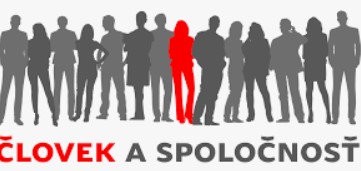Recodifications of the history of post-war migration schemes in post-1989 Slovak and Hungarian policy (Traumas - Manipulations - Propaganda)
Recodifications of the history of post-war migration schemes in post-1989 Slovak and Hungarian policy (Traumas - Manipulations - Propaganda)
Author(s): Štefan ŠutajSubject(s): Post-War period (1950 - 1989), Migration Studies, Politics of History/Memory, Asylum, Refugees, Migration as Policy-fields
Published by: Spoločenskovedný ústav SAV, Slovenská akadémia vied
Keywords: historical memory; commemoration; instrumentalization of history; propaganda; population exchange; migration; national policy in Slovakia; post-war legislation;
Summary/Abstract: Objectives: The aim of the article is to uniquely summarize the findings of long-term research to point out that the instrumentalization of the history of post-war migration is influenced by the effort to recodify historical events in the interest of new political goals and the needs of political practice. In the article were used several methodological approaches. Long-term archival research findings were compared with monitoring of Slovak and Hungarian daily press after 1989. Based on the documents obtained, by comparing them and by generalizing the knowledge gained in previous periods, which has been presented in several works, the author tries to take a look at the instrumentalization of post-war national policy and migratory population movements in Czechoslovakia and Hungary. In particular, he looks at the migratory movements of the Slovak and Hungarian populations in the postwar period, e.g. the population exchange agreement between Czechoslovakia and Hungary, the forced displacement of Slovak Hungarians to Bohemia, and other segments of the post-war Czechoslovak anti-minority policy, which is referred to under the collective, albeit incorrect, term the Beneš Decrees in political and propaganda practice. It is this term that symbolises the influence of politics and propaganda in explaining historical events. Background: In the context of the issues raised, the study provides a brief characterisation of the post-war situation in Slovak-Hungarian relations, a look at Czechoslovak post-war legislation and the stabilisation of the borders at the Paris Conference of 1946. It highlights the differences in the strategies of Hungary and Czechoslovakia in relation to the confirmation of the borders after the WWII and the strategy of both states at the Paris Peace Conference. Furthermore, it discuss the process of establishing stable borders to the peace treaties adopted in the 20th century. He observes the assimilationist patterns of the unification of Slovakia’s post-war ethnic structure and the interpretation of post-war national and resettlement policies as a process of instrumentalizing post-war history in political and propaganda practice. The paper pays special attention to the issue of post-war legislation, under which politics, journalism and public opinion classified all post-war measures against minorities, labelled the “Beneš Decrees”. Conclusion: The author concludes that the instrumentalization of the history of post-war migrations is influenced by the desire to recodify historical events in the interest of new political aims and the needs of political practice. This endeavour makes abundant use of purposefully selected linguistic devices that are used to emotionally affect the recipient of the resulting product. These include both the demonization and glorification of historical actors, as well as the purposeful adjustment of historical facts to the contemporary political needs of political actors. This is closely related to the construction of commemorative mechanisms and schemes by which political propagandists seek to dominate public space in areas inhabited jointly by Hungarians and Slovaks.
Journal: Človek a spoločnosť
- Issue Year: 25/2022
- Issue No: 1
- Page Range: 1-15
- Page Count: 15
- Language: English

